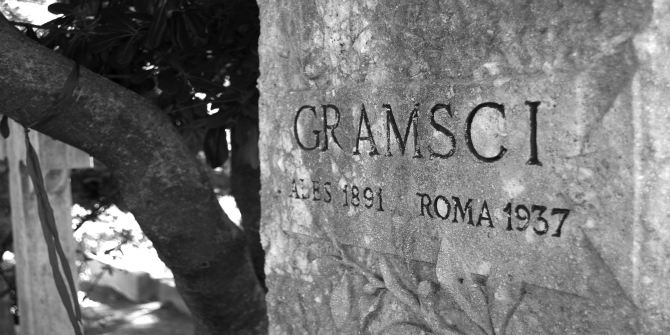 In Wait: The Art of Procrastination, Frank Partnoy argues that decisions of all kinds, whether ‘snap’ or long-term, benefit from being made at the last possible moment. The art of knowing how long you can afford to delay before committing is at the heart of many a great decision, whether in a corporate takeover or a marriage proposal. Apologies are better received if they are not rushed; audiences listen more attentively if speakers pause first; people who can defer gratification are happier and more successful than those who must have everything now. Jacob Phillips is not convinced however, and argues that Partnoy sidesteps issues of integrity, remorse and ethics too often.
In Wait: The Art of Procrastination, Frank Partnoy argues that decisions of all kinds, whether ‘snap’ or long-term, benefit from being made at the last possible moment. The art of knowing how long you can afford to delay before committing is at the heart of many a great decision, whether in a corporate takeover or a marriage proposal. Apologies are better received if they are not rushed; audiences listen more attentively if speakers pause first; people who can defer gratification are happier and more successful than those who must have everything now. Jacob Phillips is not convinced however, and argues that Partnoy sidesteps issues of integrity, remorse and ethics too often.
This was originally published on LSE’s Review of Books.
Wait: The Art of Procrastination. Frank Partnoy. Profile Books. June 2012. Find this book: ![]()
![]()
Procrastination is usually defined as deferring something until later. Although strictly speaking the term is somewhat neutral, it is often used with a pejorative tone. The issue is not so much deferring something which could be done sooner – but deferring something which should be done now. The supposition that procrastination amounts to a personal weakness is indicated by well-worn adages, such as ‘never put off to tomorrow something you can do today’.
Procrastination is also becoming less tolerable in contemporary society. In Wait: The Art of Procrastination, Frank Partnoy vividly draws our attention to this fact in a discussion of modern media. Journalism is unrecognisably faster than a few years ago, when journalists worked to one publishing deadline, in the evening before the following day’s newspapers. With globalised technology, there are deadlines occurring throughout the day and night – roughly every two hours – with journalists gathering and presenting information in breath-taking speed. This is but one example of the way economic, and technological pressures combine to encourage the development of fundamental presuppositions along the lines of ‘quicker is better’, or ‘faster is more’.
Procrastination, then, stands in stark contrast to the prevailing cultural ethos. Frank Partnoy sets himself the task of seeking to reverse the trend. He draws on a broad array of sources to make his case – including psychology, behavioural economics, neuroscience, law, finance and history. His book is arranged in an aesthetically pleasing structure, working from a discussion of the benefits of deferring action in very fast millisecond timeframes right the way through to decisions which can take years.
The most interesting and informative discussions in Wait regard the faster timeframes. The assumption that quicker is better, for example, can be seen in ‘thin slicing’, which sought to manipulate the finding that people were able to detect patterns in an event just by experiencing a narrow slice of time within that event, i.e. two seconds. This has been applied in various areas, from interview preparation to relationship counselling. However, Partnoy presents us with plentiful research to show how dubious human judgments are when made at lightning speeds, including studies that show doctors treat patients differently through snap decisions influenced by racial observations; in general, says Partnoy, doctors are more likely to provide treatment and medication for white people than black. It is of course troubling that society prizes speed more and more, whilst the application of thoughtfulness and deliberation is sometimes of such clear benefit.
Despite providing some interesting examples, the range of sources in Wait leads to problems. In the earlier chapters, Partnoy discusses the benefits of deferring action on the tennis court, where a player has a few milliseconds to pause before returning a serve to optimum effect. Later he draws examples from military strategy, where fighter pilots are trained in learning a pattern of decision making along the lines of ‘observe, orient, decide and act’, or OODA, for short. Here, we cannot help but wonder if such broad strokes on the principle of deferring action can really be employed across such a range of situations. Deciding when to hit a ball is rather different to deciding whether or not to pull a trigger. Partnoy doesn’t really seem to be aware of the difference between being on a sports field or in a situation with very serious human consequences, even though he discusses the accidental shooting-down of an Iranian airbus by the US military in 1998, which cost the lives of 290 civilians.
This apparently seamless gliding over radically different situations thus creates the impression that there is something of an ethical vacuity at the heart of Partnoy’s discussion. When the timing of apologies by politicians is subjected to his analysis, he speaks of ‘good’ apologies and ‘bad’, purely in terms of correct timing, judged with reference to optimising voter reaction. He even applies the OODA formula to apologising for an off-the-cuff homophobic remark, or serious marital infidelity. What he does not do, is make any mention of whether or not a ‘good’ apology might also involve something like genuine remorse, sincerity, or the restoration of integrity.
These issues become somewhat acute when one considers that Partnoy claims his interest in procrastination stems from seeking to understand the bad decisions which preceded the financial crisis of 2008. Again, one can’t help but wonder if it is really legitimate to argue that the benefits of deferring action on the sportsfield can really have something to offer when one is dealing with systemic issues in global finance. The ease with which Partnoy moves from sport to economics is reminiscent of Max Weber’s suggestion that capitalism devoid of ethical meaning develops the character of sport. Indeed, Partnoy’s assumption that the temporal dynamics of decision in baseball, tennis, poker, and football, can inform our ability to make complex decisions with far-reaching human ramifications, gives Weber’s words an eerie resonance.
Partnoy is a former investment banker, and an academic expert in financial markets. Wait therefore features lots of discussion of high-frequency trading, bonds, stocks and so on. But it is nowhere acknowledged that the speed fetishisation apparent in, say, the modern media, could be linked to the dominant hegemony of a system based on growth, increasing wealth acquisition, competitiveness and a ‘more is better’ culture. This is not to say that Partnoy could not provide a robust response to such criticisms – but simply to sidestep such an obvious issue undermines the overall effect of the book.
So, despite the fact that a discussion of the need to readjust our ‘faster is better’ ethos is essentially both timely and welcome – as regards this book, those considering engaging with it would perhaps be best advised to defer their action, and practise something of the art of procrastination themselves.
Note: This article gives the views of the author(s), and not the position of the Impact of Social Sciences blog, nor of the London School of Economics.
About the author:
Jacob Phillips is doing a PhD at King’s College London. His research interests include human subjectivity in continental philosophy and systematic theology, German philosophy, the role of the humanities in contemporary society and the academy in public life. He enjoys reading and writing more broadly on various aspects of art, literature, philosophy and religion. Read more reviews by Jacob.









1 Comments